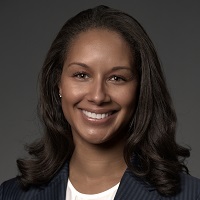Three Ways You Can Create a Healthy Relationship With Money
Understanding the why of your decisions, balancing needs vs wishes and looking at money as a resource rather than something to be accumulated can reshape your money beliefs.


Profit and prosper with the best of Kiplinger's advice on investing, taxes, retirement, personal finance and much more. Delivered daily. Enter your email in the box and click Sign Me Up.
You are now subscribed
Your newsletter sign-up was successful
Want to add more newsletters?

Delivered daily
Kiplinger Today
Profit and prosper with the best of Kiplinger's advice on investing, taxes, retirement, personal finance and much more delivered daily. Smart money moves start here.

Sent five days a week
Kiplinger A Step Ahead
Get practical help to make better financial decisions in your everyday life, from spending to savings on top deals.

Delivered daily
Kiplinger Closing Bell
Get today's biggest financial and investing headlines delivered to your inbox every day the U.S. stock market is open.

Sent twice a week
Kiplinger Adviser Intel
Financial pros across the country share best practices and fresh tactics to preserve and grow your wealth.

Delivered weekly
Kiplinger Tax Tips
Trim your federal and state tax bills with practical tax-planning and tax-cutting strategies.

Sent twice a week
Kiplinger Retirement Tips
Your twice-a-week guide to planning and enjoying a financially secure and richly rewarding retirement

Sent bimonthly.
Kiplinger Adviser Angle
Insights for advisers, wealth managers and other financial professionals.

Sent twice a week
Kiplinger Investing Weekly
Your twice-a-week roundup of promising stocks, funds, companies and industries you should consider, ones you should avoid, and why.

Sent weekly for six weeks
Kiplinger Invest for Retirement
Your step-by-step six-part series on how to invest for retirement, from devising a successful strategy to exactly which investments to choose.
Buying a house, planning a big vacation, picking your retirement date … Most of us don't take these major financial decisions lightly. We build our lives one financial choice at a time, carefully considering the dollars and cents.
But most people don't realize that the bottom line isn't the end of the story. Humans are emotional creatures, and even the most "rational" of us can seem to act "irrationally" when it comes to money decisions. That's where understanding financial psychology comes in. Recognizing the psychological factors that influence our financial choices helps us make more considered decisions, especially during stressful times.
In my experience working at the intersection of financial and personal well-being, I've helped numerous clients address the qualitative aspects of wealth management. And now, I'm here to share just a few of the most helpful points with you.
From just $107.88 $24.99 for Kiplinger Personal Finance
Become a smarter, better informed investor. Subscribe from just $107.88 $24.99, plus get up to 4 Special Issues

Sign up for Kiplinger’s Free Newsletters
Profit and prosper with the best of expert advice on investing, taxes, retirement, personal finance and more - straight to your e-mail.
Profit and prosper with the best of expert advice - straight to your e-mail.
Understand the ‘why’ behind your financial behaviors
First of all, it helps to start with why. Did I buy that car for me, or for the impression it makes on other people? Why do I shop online when I'm stressed? Did I sell that stock out of the fear of losing money?
By deeply contemplating your financial decisions, you can develop an understanding of what your tendencies are. This helps build self-awareness. Eventually, self-awareness could lend you the ability to pause and consider all aspects of a decision before finalizing it.
We all have financial comfort zones, those areas in which we make decisions by habit, without consideration. These zones are shaped by our past experiences. While they can provide a sense of security and help to manage decision-making stress, they can also expose us to our financial blind spots.
Financial blind spots are the biases and emotions that impact our decision-making. Overconfidence, loss aversion and mental accounting can lead to negative outcomes, sometimes without us even noticing. Similarly, money scripts, or money messages, are the core beliefs about money that we develop through childhood experiences and financial flashpoints. These all have a major influence on how we make financial decisions.
By fully understanding our "why" — by identifying what we learned about money growing up and how those experiences informed our current money beliefs — we can mitigate these blind spots and scripts.
Find the balance between needs and wishes
After you start to understand your why, you'll need to examine what your goals are. What is most important to you, now and in the future? What about your family? And when do you want to achieve your goals? All choices have costs.
We define "needs" as anything that enhances your well-being. From eating nourishing food to having appropriate insurance coverage, our needs are critical to our flourishing. On the other hand, our "wishes" are our long-term financial goals and dreams, such as starting a business, achieving financial independence or retiring early. Wishes represent the culmination of our ambitions and the realization of our broader life aspirations.
Finding a balance between these isn't easy, especially in the chaos of everyday life. But by focusing on what we can control, such as how we interact with money and how we use our priorities as a filter for making financial decisions, we can foster conscious, informed decisions that align with both the short term and the long term.
Note: When you're evaluating your own needs and wishes, avoid comparing your financial situation to other people. You never really have a complete view of and understanding of someone else’s financial situation. Someone else's "why" could be entirely different from yours.
Look beyond the money
Defining your wealth by the number in your accounts can be very limiting. In the real world, wealth is defined in a variety of ways.
Your health, your time, your relationships, your skills and your knowledge can be defined as wealth. These are things that money can't buy on its own, and they contribute significantly to overall well-being.
For instance:
- You can pay for a personal trainer, but if you have a poor diet, your health will suffer
- You can pay for an Ivy League education, but if you don't study, you won't get much out of it
- You can pay for lunch when you go out with friends, but this won't create meaningful relationships in and of itself
In this sense, money can be leveraged as a resource — as a means to help you pursue your goals — but it can't accomplish anything on its own. Human intervention is required to direct the purpose of money. And you define that intervention.
Expand your perspectives
Behavioral Wealth Management is about more than just accumulating assets; it's about understanding the deeper motivations behind your financial decisions and making these decisions in the context of the bigger picture — your overall well-being. By expanding your perspective on wealth to include your time, relationships, health and more, you can make financial decisions that create a balanced and fulfilling life.
Related content
- 10 Steps for Having Better Money Conversations With Your Spouse
- 11 Mindsets That May Actually Be Hurting Your Financial Progress
- Is Your Money Mindset Unhealthy? You Can Change It
- Seven Habits for a Happy Retirement
- 11 Money Habits Financial Experts Wish More People Would Cultivate
Profit and prosper with the best of Kiplinger's advice on investing, taxes, retirement, personal finance and much more. Delivered daily. Enter your email in the box and click Sign Me Up.

As a Behavioral Wealth Specialist, Cohen helps clients address the qualitative aspects of wealth management by providing a framework for understanding the emotional and behavioral components of their financial decisions. Her professional acumen as a Licensed Marriage and Family Therapist paired with her experience as a coach allows Cohen to be an effective thought partner as clients navigate the interpersonal and intrapersonal dynamics of wealth and life transitions.
-
 The New Reality for Entertainment
The New Reality for EntertainmentThe Kiplinger Letter The entertainment industry is shifting as movie and TV companies face fierce competition, fight for attention and cope with artificial intelligence.
-
 Stocks Sink With Alphabet, Bitcoin: Stock Market Today
Stocks Sink With Alphabet, Bitcoin: Stock Market TodayA dismal round of jobs data did little to lift sentiment on Thursday.
-
 Betting on Super Bowl 2026? New IRS Tax Changes Could Cost You
Betting on Super Bowl 2026? New IRS Tax Changes Could Cost YouTaxable Income When Super Bowl LX hype fades, some fans may be surprised to learn that sports betting tax rules have shifted.
-
 The 4 Estate Planning Documents Every High-Net-Worth Family Needs (Not Just a Will)
The 4 Estate Planning Documents Every High-Net-Worth Family Needs (Not Just a Will)The key to successful estate planning for HNW families isn't just drafting these four documents, but ensuring they're current and immediately accessible.
-
 Love and Legacy: What Couples Rarely Talk About (But Should)
Love and Legacy: What Couples Rarely Talk About (But Should)Couples who talk openly about finances, including estate planning, are more likely to head into retirement joyfully. How can you get the conversation going?
-
 How to Get the Fair Value for Your Shares When You Are in the Minority Vote on a Sale of Substantially All Corporate Assets
How to Get the Fair Value for Your Shares When You Are in the Minority Vote on a Sale of Substantially All Corporate AssetsWhen a sale of substantially all corporate assets is approved by majority vote, shareholders on the losing side of the vote should understand their rights.
-
 How to Add a Pet Trust to Your Estate Plan: Don't Leave Your Best Friend to Chance
How to Add a Pet Trust to Your Estate Plan: Don't Leave Your Best Friend to ChanceAdding a pet trust to your estate plan can ensure your pets are properly looked after when you're no longer able to care for them. This is how to go about it.
-
 Want to Avoid Leaving Chaos in Your Wake? Don't Leave Behind an Outdated Estate Plan
Want to Avoid Leaving Chaos in Your Wake? Don't Leave Behind an Outdated Estate PlanAn outdated or incomplete estate plan could cause confusion for those handling your affairs at a difficult time. This guide highlights what to update and when.
-
 I'm a Financial Adviser: This Is Why I Became an Advocate for Fee-Only Financial Advice
I'm a Financial Adviser: This Is Why I Became an Advocate for Fee-Only Financial AdviceCan financial advisers who earn commissions on product sales give clients the best advice? For one professional, changing track was the clear choice.
-
 I Met With 100-Plus Advisers to Develop This Road Map for Adopting AI
I Met With 100-Plus Advisers to Develop This Road Map for Adopting AIFor financial advisers eager to embrace AI but unsure where to start, this road map will help you integrate the right tools and safeguards into your work.
-
 The Referral Revolution: How to Grow Your Business With Trust
The Referral Revolution: How to Grow Your Business With TrustYou can attract ideal clients by focusing on value and leveraging your current relationships to create a referral-based practice.